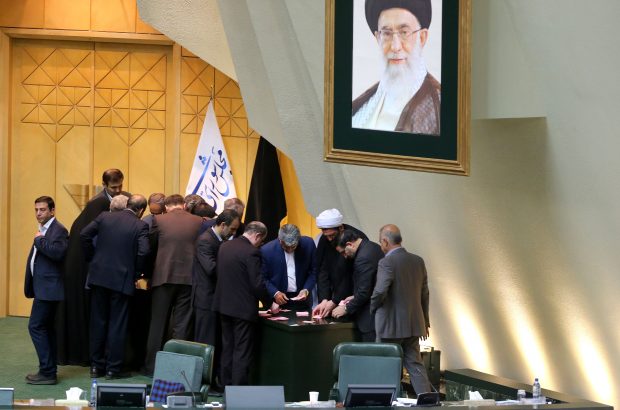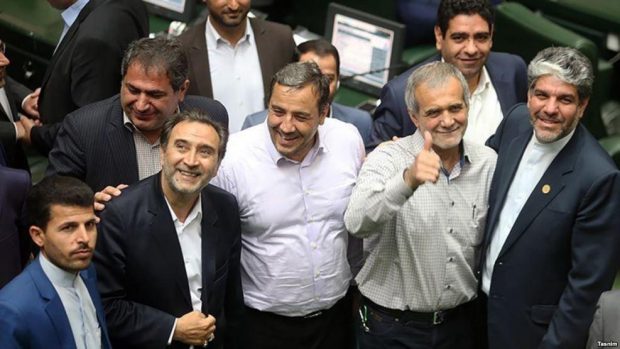
Iranian Turks’ new parliamentary faction breaking more taboos

Umid Niayesh – Trend.az
For the first time in the Islamic Republic’s history, Iranian Turkic-speaking MPs, including Azerbaijanis formed a parliamentary faction calling it “Faction of Turkic Regions.”
The faction held its first meeting on Oct. 30 and elected Masoud Pezeshkian and Nader Qazipour, Tabriz and Urmia representatives, as its head and deputy head, respectively.
At least 100 MPs of Iran’s 290-member parliament from different political backgrounds were present in the faction’s first meeting.
Besides Iranian north-western Azerbaijani MPs, who are about 40 in number, representatives from other areas of Iran with Turkic population, including capital city of Tehran, Shiraz and Qom are also members to the faction, holding 34 percent of the parliament seats.
There is no accurate or official statistics about the number of Turkic-speaking population of Iran, however Ali Akbar Salehi, the Islamic Republic’s then foreign minister, said during a visit to Turkey in 2012 that “about 40 percent of Iranians speak Turkish, so this is a big link between Turkey and Iran.”
The move to form a faction based on ethnic identity itself is a daring move, as the Iranian officials have always tried to eliminate Iran’s ethnic diversity and have not permitted the issues with ethnic background to be highlighted in the country.
Now some ethnic Turks from the administration’s inner circles have decided to form a parliamentary group for “a strategic management with an aim to solve the problems of the regions inhabited by Turkic population.”
Actually the issues related to the ethnic groups’ rights have found way to Iran’s political discourses in recent years and politicians started to refer to that, in particular during the elections.

Iranian President Hassan Rouhani published a statement during his presidential campaign in June 2013 regarding teaching of the ethnic mother tongues of Iranians (Kurdish, Azerbaijani, Arabic, etc.), officially emphasizing his intention to fully implement the Article 15 of Iran’s Constitution. In his statement, Rouhani also promised to abandon the look towards the ethnicities from the security lens.
Furthermore, during a visit to Tabriz in 2013, Rouhani promised that an Azerbaijani language and literature academy will be established in the city.
It was the first time that two important demands of Azerbaijani activists and scholars were among the concrete promises of a presidential candidate.
Rouhani is well known for his background in intelligence, and his approach towards the Iranian ethnic groups can be considered as a sign of some change in the Islamic Republic’s viewpoint regarding the issue.
Therefore, the formation of the Turkic faction in Iran’s parliament can be seen as realization of those changes in Iran’s major policies regarding the ethnic groups.
However, the faction has already caused concerns among certain Iranian intellectual circles, which see it as a threatening step against Iran’s national unity, through intensifying ethnic sectarianism.
On the other hand, the faction’s supporters emphasize that it is causing no threat to the country’s national unity, but is contributing to the national security through preventing radicalization of ethnic groups’ demands.
In fact, formation of an ethnic faction in the parliament can not be considered as a big deal given that in many countries, including in some neighbors of Iran, ethnic-based parties are represented in the parliament.
Although the Iranian administration seems to have softened its attitude towards the rights of the ethnic groups, still a major and effective part of academic, political and intellectual (either close to government or opposition) circles continue to see the ethnic rights’ issues as a security problem and essentially unnecessary.
Therefore, the majority of Iranian society, in particular intellectual circles need, even more than the government, to update their attitude to the issue based on today’s conditions.


